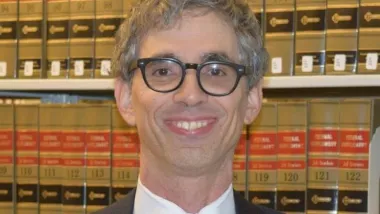This morning, one of my listservs was aflutter with discussion of a new article by Joel Kotkin, attacking an alleged "war against the suburbs." According to Kotkin, this "war" consisted of Jerry Brown’s efforts to "compel residents to move to city centers." After reading Kotkin’s article, I couldn’t really figure out exactly what Brown was trying to do- and since I don’t live in California, it really isn’t that important to me. However, it is important to realize that "smart growth" need not be the enemy of suburbs. Here’s why:
This morning, one of my listservs was aflutter with discussion of a new article by Joel Kotkin, attacking an alleged "war against the suburbs." According to Kotkin, this "war" consisted of Jerry Brown's efforts to "compel residents to move to city centers." After reading Kotkin's article, I couldn't really figure out exactly what Brown was trying to do- and since I don't live in California, it really isn't that important to me.
However, it is important to realize that "smart growth" need not be the enemy of suburbs. Here's why:
Suppose you are in a bucolic outer suburb, where one- and two-acre lots dominate the landscape. Under the sprawl status quo, more and more subdivisions are coming your way. That means your neighborhoods will become more like cities and older suburbs: more dense, more socially diverse. The residents of these subdivisions will crowd your roads, making your commute more difficult. By contrast, the most radical smart growth policies (such as Oregon's urban growth boundaries) limit developers' rights to build up those outer suburbs. Bad for the developers, but very good for you, the incumbent suburbanite.
What if you are in an older suburb? The sprawl status quo means that jobs and people will migrate to outer suburbs - but they'll still drive on your roads, so you still have traffic to worry about. Moreover, some of those people moving to outer suburbs may abandon your suburb. And if they are replaced by poorer households, your tax base and public schools may decline; eventually, you will be faced with the same problems as the troubled city nearby. So policies that limit outer-suburban development may protect your suburb from the problems of the Big Bad City.
In sum, arguments over sprawl and smart growth are not simply "city vs. suburb" battles. Suburbanites' interests are complex, and do not always square with the interests of the developers and road-builders.

Planetizen Federal Action Tracker
A weekly monitor of how Trump’s orders and actions are impacting planners and planning in America.

Chicago’s Ghost Rails
Just beneath the surface of the modern city lie the remnants of its expansive early 20th-century streetcar system.

Amtrak Cutting Jobs, Funding to High-Speed Rail
The agency plans to cut 10 percent of its workforce and has confirmed it will not fund new high-speed rail projects.

Ohio Forces Data Centers to Prepay for Power
Utilities are calling on states to hold data center operators responsible for new energy demands to prevent leaving consumers on the hook for their bills.

MARTA CEO Steps Down Amid Citizenship Concerns
MARTA’s board announced Thursday that its chief, who is from Canada, is resigning due to questions about his immigration status.

Silicon Valley ‘Bike Superhighway’ Awarded $14M State Grant
A Caltrans grant brings the 10-mile Central Bikeway project connecting Santa Clara and East San Jose closer to fruition.
Urban Design for Planners 1: Software Tools
This six-course series explores essential urban design concepts using open source software and equips planners with the tools they need to participate fully in the urban design process.
Planning for Universal Design
Learn the tools for implementing Universal Design in planning regulations.
Caltrans
City of Fort Worth
Mpact (founded as Rail~Volution)
City of Camden Redevelopment Agency
City of Astoria
City of Portland
City of Laramie






























